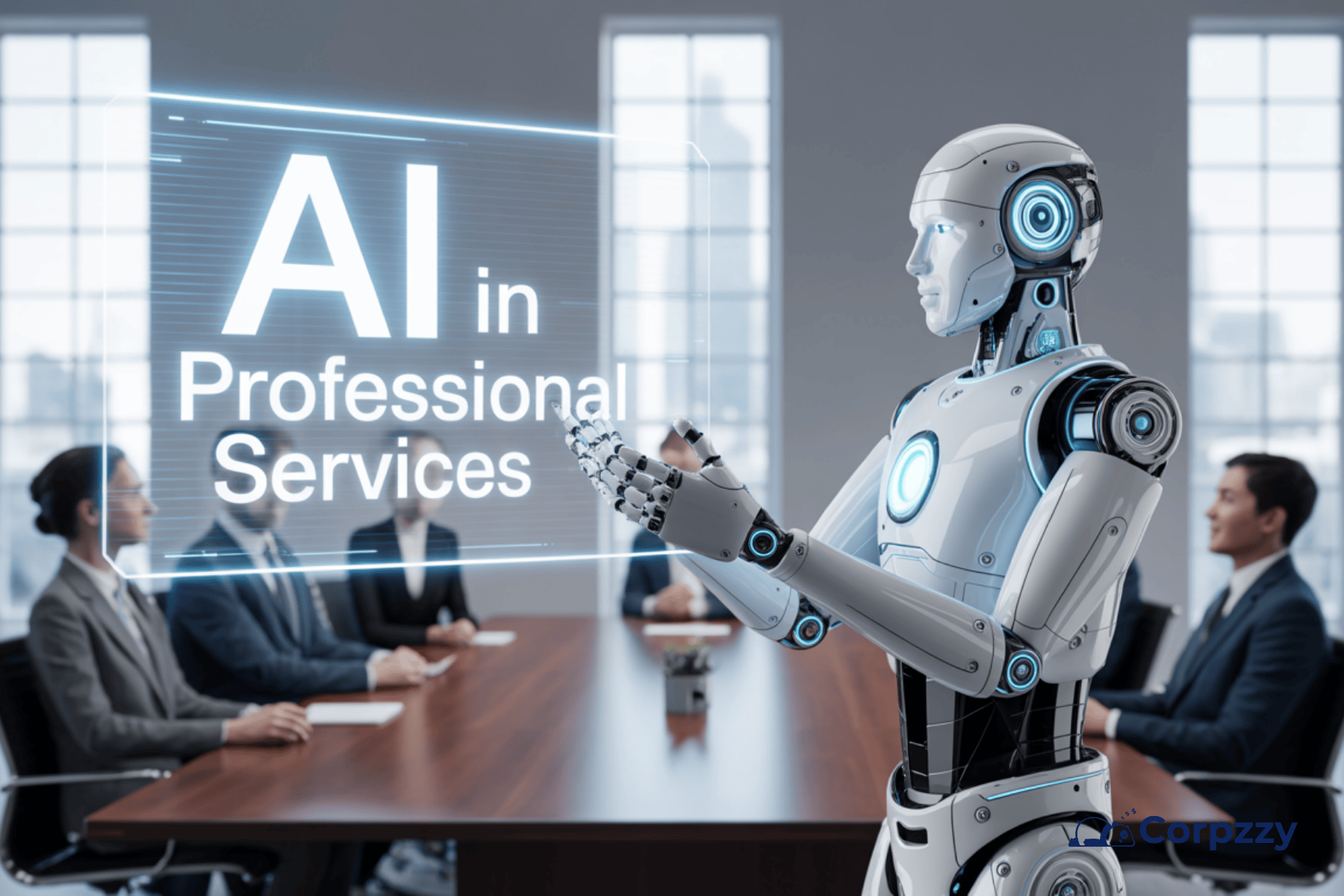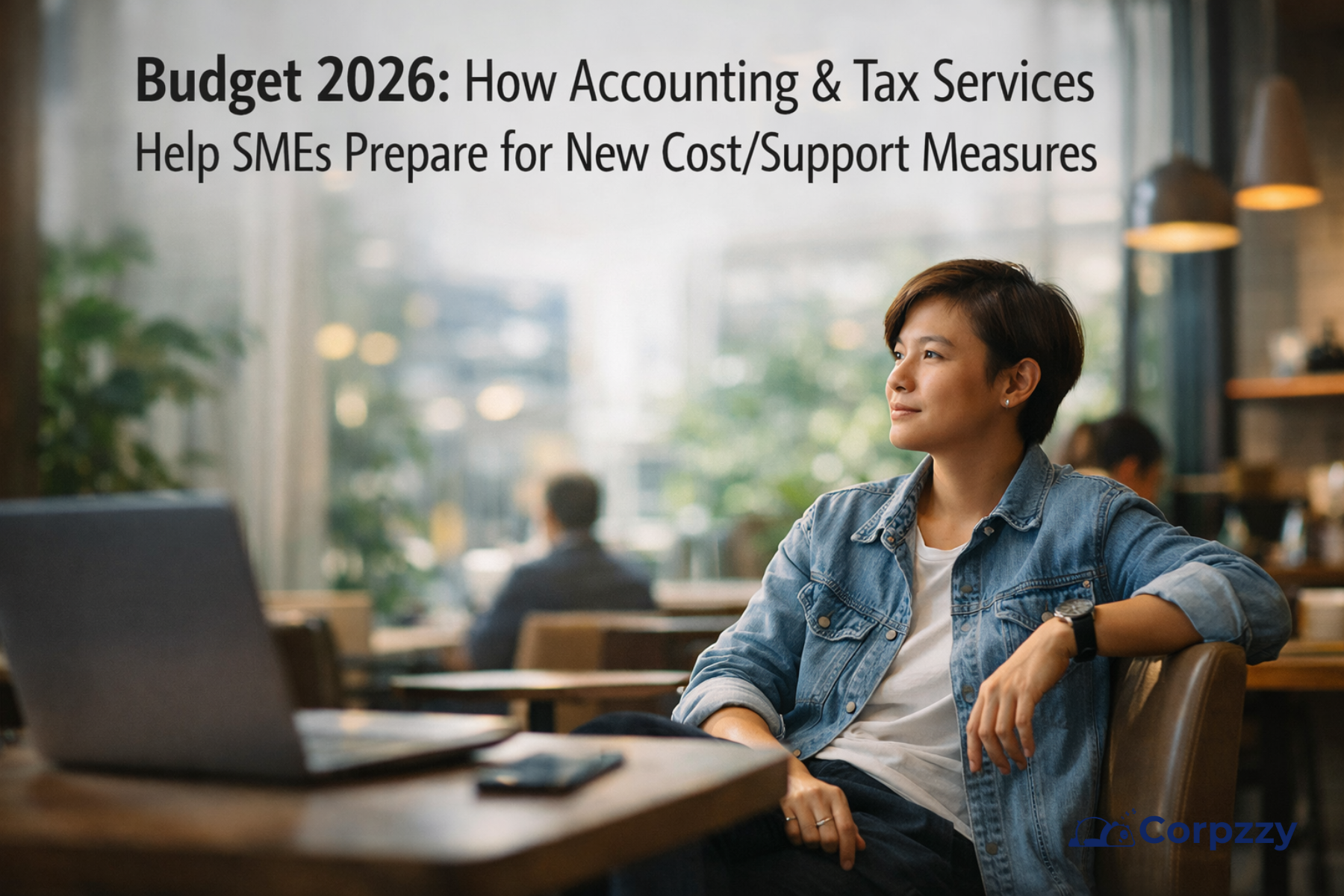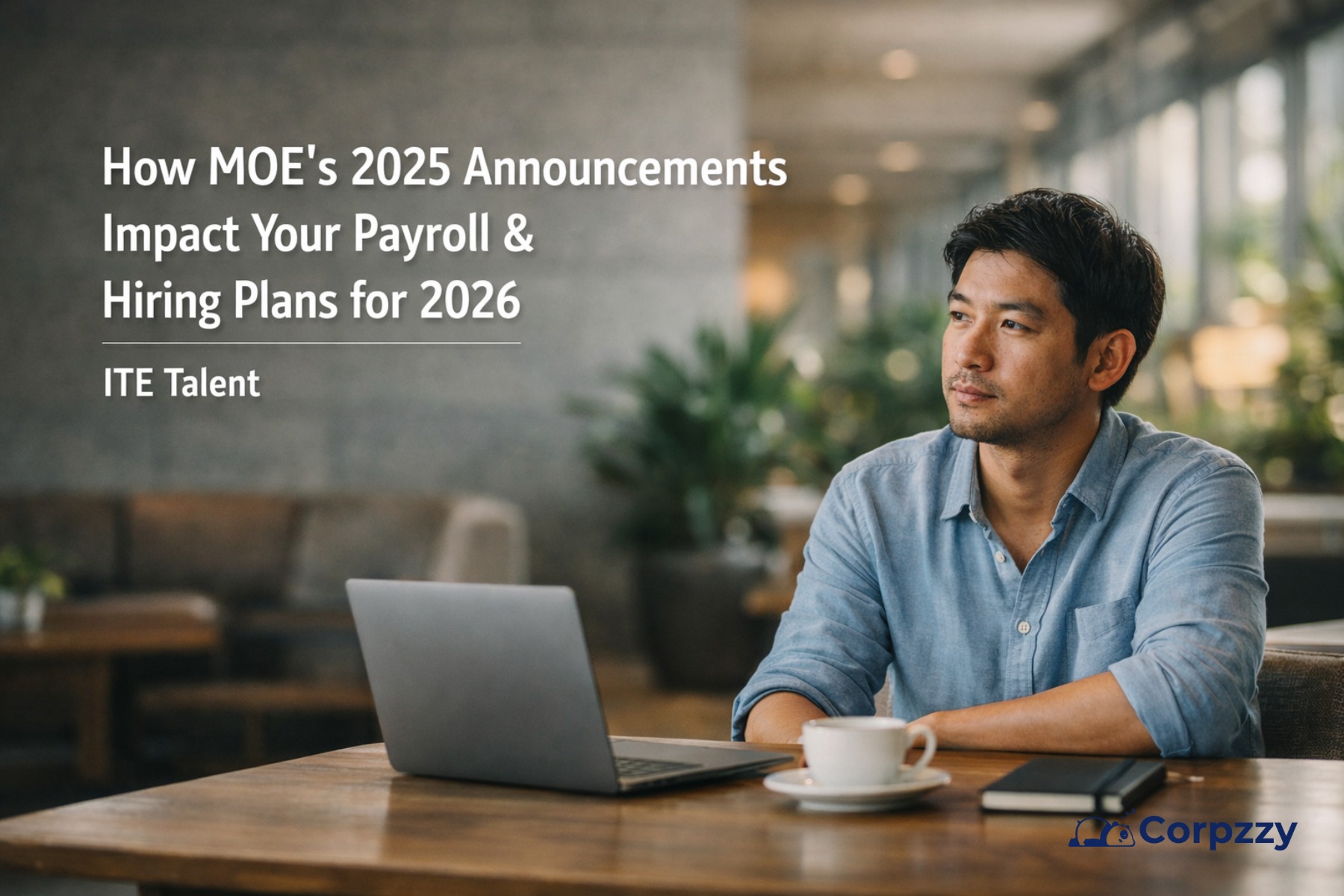AI in Professional Services: How Automation Is Reshaping the Industry in Malaysia and Southeast Asia
AI in Professional Services: How Automation Is Reshaping the Industry in Malaysia and Southeast Asia
Outline

Artificial Intelligence (AI) is transforming how professional service firms across Malaysia and Southeast Asia operate, deliver value, and remain competitive. From law firms and accounting practices to IT service providers and HR consultancies, AI is no longer just a tool for tech companies—it’s becoming a foundational pillar in service-based industries. This article explores how AI is reshaping professional services, particularly in Malaysia, where firms are embracing automation to boost efficiency, reduce operational costs, and enhance decision-making. We also look at how organizations can strategically deploy AI while staying compliant with emerging data governance standards.
Why AI Is Gaining Ground in Malaysia’s Professional Services Sector
Malaysia’s push toward becoming a digital economy has accelerated AI adoption across industries. Government programs such as Malaysia Digital (MD) by MDEC have created incentives for digital transformation, including AI integration in service sectors. In fact, Malaysia ranks among the most AI-ready countries in ASEAN, supported by initiatives like MyDIGITAL and the National AI Roadmap 2021–2025 (Source: MDEC, 2023). Professional services—legal, finance, HR, and IT—are particularly suited for AI automation due to their structured, data-driven workflows. Unlike creative industries that depend on subjective output, service firms handle high volumes of repetitive tasks that AI can optimize without compromising quality.
Strategic AI Adoption: SMEs Lead the Charge
According to the Hubstaff AI Productivity Shift Report (2025), 67% of small firms are actively using AI, compared to 43% of larger enterprises. In Malaysia, this is especially true in urban centers like Kuala Lumpur, Penang, Johor Bahru, and Cyberjaya, where SMEs make up over 97% of registered businesses (Source: SME Corp Malaysia, 2024). Smaller firms use AI to automate workflows such as:
- Drafting emails
- Generating invoices
- Tracking billable hours
- Scheduling meetings
Meanwhile, larger firms are adopting a slower, more cautious approach due to concerns around data privacy (PDPA compliance), internal governance, and integration complexity.
Key Areas Where AI Is Creating Impact
1. Human Resources (HR) and Talent Acquisition
HR functions are being transformed through AI-powered tools that speed up:
- Resume screening
- Interview transcription
- Job description generation
- Onboarding documentation
AI tools in use:
- HireVue: For AI-enhanced candidate evaluation
- Pymetrics: For cognitive assessments in recruitment
- Hubstaff: For time tracking, productivity monitoring, and remote team insights
These platforms reduce hiring time while improving candidate fit—critical for companies in Malaysia’s competitive talent landscape (Source: TalentCorp Malaysia, 2024).
2. Finance and Accounting
AI is streamlining financial workflows, particularly for firms managing multiple clients or entities. Key use cases include:
- Automated expense categorization
- Fraud detection and risk modeling
- Invoice scanning and reconciliation
Top tools:
- QuickBooks AI: Financial health tracking with AI categorization
- Vic.ai: Autonomous invoice processing and audit trail generation
- Hubstaff Payroll: Integrates time tracking into automated invoicing
This has significantly reduced errors and accelerated monthly closing cycles, especially for tax consultants working with LHDN (Inland Revenue Board of Malaysia) filings.
3. IT and Managed Services
AI improves responsiveness and reliability in managed IT service firms. Applications include:
- Ticket triage automation
- System performance monitoring
- Predictive alerts for cybersecurity
Platforms like:
- Freshdesk AI (Freddy): Categorizes and auto-responds to IT support tickets
- Datadog AI: Detects anomalies in infrastructure
- Hubstaff: Monitors time spent per project, improves SLA reporting
These efficiencies help Malaysian IT providers deliver better uptime and client satisfaction across sectors like healthcare, finance, and logistics.
AI in Action: Real Malaysian Use Cases
Case Study: Transmiservice (Selangor)
Before AI: Documentation for non-compliance cases took ~20 minutes each
After AI: Using Copilot-style assistance, it now takes 4 minutes
🔗 Source: Hubstaff AI Productivity Report, 2025
Case Study: Boutique Law Firm (Kuala Lumpur)
Before AI: Days to draft internal and client reports
After AI: Routine writing done in minutes using Gemini AI
Result: Lawyers focus more on legal strategy, less on formatting
Measurable Productivity Gains with AI
Data from the Hubstaff AI Productivity Shift Report shows:
- 23% reduction in unproductive hours
- More “focus sessions” (30+ minutes of uninterrupted work)
- Increased employee wellbeing from improved time management
Firms in Kuala Lumpur and Johor leveraging AI tools report fewer distractions and better alignment with OKRs (Source: Hubstaff, 2025).
Risks and Challenges: What to Watch For
Despite the promising benefits, AI also introduces risks that firms must manage carefully:
❗ Governance Gaps
Many firms still lack policies governing AI usage. Without controls, there’s a risk of non-compliance with Malaysia’s PDPA or international frameworks like the EU AI Act.
❗ Burnout Risk
Faster output can raise expectations and workloads. A 2024 State of AI in Employee Experience report found that only 27% of employees use saved time to increase productivity, while 47% prefer to enhance quality (Source: Gartner, 2024).
❗ Creative Degradation
AI overuse can erode strategic thinking. Hubstaff found that 1 in 3 professionals worry AI could reduce critical thinking skills in their field.
Best Practices for Ethical, Effective AI Use
- Set Clear Objectives: Define specific business outcomes, like reducing report preparation time by 50% or automating payroll for 200+ staff.
- Appoint Cross-Functional AI Champions: Create AI task forces across legal, HR, operations, and IT to manage tools, flag risks, and share insights.
- Invest in Training: Equip your team with hands-on training in tools like ChatGPT, Hubstaff, Tableau AI, or Jasper. Offer continuous learning resources.
- Implement Guardrails: Ensure a “human-in-the-loop” approach for all high-stakes decisions—especially those involving finance, contracts, or customer experience.
How AI Is Changing Professional Roles
With AI automating tasks like document formatting, time logging, and data entry, professionals in Malaysia are transitioning to more strategic roles:
- HR teams now focus on culture and talent development
- Accountants act more as advisors than bookkeepers
- Legal professionals emphasize legal strategy over admin
- IT consultants optimize systems instead of just monitoring them
Firms are also rethinking their pricing models. As deliverables take less time, the traditional hourly billing model is being replaced by value-based or subscription pricing (Source: Thomson Reuters Legal Trends Report, 2024).
What’s Coming Next: 2025 and Beyond
According to Hubstaff’s research:
- 54% of leaders encourage self-learning of AI tools
- 25% have launched structured internal training
- 18% are hiring AI-specific roles
- 29% still lack formal AI adoption strategies
Key future trends include:
- Industry-specific AI tools (e.g., tax AI, HR compliance AI)
- Greater client demand for AI transparency
- Tighter alignment with regulatory bodies (e.g., LHDN, SSM, Bank Negara)
Conclusion: A New Era of Smart Services
AI is no longer an experiment — it’s a competitive imperative for Malaysian firms. The professional services industry is undergoing a shift similar to the Industrial Revolution, except this time the change is digital and cognitive, not mechanical.
The firms that succeed will be those that:
- Embrace AI with governance
- Balance efficiency with empathy
- Prioritize outcomes over output
- Treat human judgment as indispensable
Whether you’re an HR firm in Penang, a law firm in KL, or a tax advisor in Johor Bahru — the time to invest in strategic, ethical AI adoption is now.
Frequently Asked Questions
Questions? We Have Answers
Related Business Articles
Share This Story, Choose Your Platform!


Artificial Intelligence (AI) is transforming how professional service firms across Malaysia and Southeast Asia operate, deliver value, and remain competitive. From law firms and accounting practices to IT service providers and HR consultancies, AI is no longer just a tool for tech companies—it’s becoming a foundational pillar in service-based industries. This article explores how AI is reshaping professional services, particularly in Malaysia, where firms are embracing automation to boost efficiency, reduce operational costs, and enhance decision-making. We also look at how organizations can strategically deploy AI while staying compliant with emerging data governance standards.
Why AI Is Gaining Ground in Malaysia’s Professional Services Sector
Malaysia’s push toward becoming a digital economy has accelerated AI adoption across industries. Government programs such as Malaysia Digital (MD) by MDEC have created incentives for digital transformation, including AI integration in service sectors. In fact, Malaysia ranks among the most AI-ready countries in ASEAN, supported by initiatives like MyDIGITAL and the National AI Roadmap 2021–2025 (Source: MDEC, 2023). Professional services—legal, finance, HR, and IT—are particularly suited for AI automation due to their structured, data-driven workflows. Unlike creative industries that depend on subjective output, service firms handle high volumes of repetitive tasks that AI can optimize without compromising quality.
Strategic AI Adoption: SMEs Lead the Charge
According to the Hubstaff AI Productivity Shift Report (2025), 67% of small firms are actively using AI, compared to 43% of larger enterprises. In Malaysia, this is especially true in urban centers like Kuala Lumpur, Penang, Johor Bahru, and Cyberjaya, where SMEs make up over 97% of registered businesses (Source: SME Corp Malaysia, 2024). Smaller firms use AI to automate workflows such as:
- Drafting emails
- Generating invoices
- Tracking billable hours
- Scheduling meetings
Meanwhile, larger firms are adopting a slower, more cautious approach due to concerns around data privacy (PDPA compliance), internal governance, and integration complexity.
Key Areas Where AI Is Creating Impact
1. Human Resources (HR) and Talent Acquisition
HR functions are being transformed through AI-powered tools that speed up:
- Resume screening
- Interview transcription
- Job description generation
- Onboarding documentation
AI tools in use:
- HireVue: For AI-enhanced candidate evaluation
- Pymetrics: For cognitive assessments in recruitment
- Hubstaff: For time tracking, productivity monitoring, and remote team insights
These platforms reduce hiring time while improving candidate fit—critical for companies in Malaysia’s competitive talent landscape (Source: TalentCorp Malaysia, 2024).
2. Finance and Accounting
AI is streamlining financial workflows, particularly for firms managing multiple clients or entities. Key use cases include:
- Automated expense categorization
- Fraud detection and risk modeling
- Invoice scanning and reconciliation
Top tools:
- QuickBooks AI: Financial health tracking with AI categorization
- Vic.ai: Autonomous invoice processing and audit trail generation
- Hubstaff Payroll: Integrates time tracking into automated invoicing
This has significantly reduced errors and accelerated monthly closing cycles, especially for tax consultants working with LHDN (Inland Revenue Board of Malaysia) filings.
3. IT and Managed Services
AI improves responsiveness and reliability in managed IT service firms. Applications include:
- Ticket triage automation
- System performance monitoring
- Predictive alerts for cybersecurity
Platforms like:
- Freshdesk AI (Freddy): Categorizes and auto-responds to IT support tickets
- Datadog AI: Detects anomalies in infrastructure
- Hubstaff: Monitors time spent per project, improves SLA reporting
These efficiencies help Malaysian IT providers deliver better uptime and client satisfaction across sectors like healthcare, finance, and logistics.
AI in Action: Real Malaysian Use Cases
Case Study: Transmiservice (Selangor)
Before AI: Documentation for non-compliance cases took ~20 minutes each
After AI: Using Copilot-style assistance, it now takes 4 minutes
🔗 Source: Hubstaff AI Productivity Report, 2025
Case Study: Boutique Law Firm (Kuala Lumpur)
Before AI: Days to draft internal and client reports
After AI: Routine writing done in minutes using Gemini AI
Result: Lawyers focus more on legal strategy, less on formatting
Measurable Productivity Gains with AI
Data from the Hubstaff AI Productivity Shift Report shows:
- 23% reduction in unproductive hours
- More “focus sessions” (30+ minutes of uninterrupted work)
- Increased employee wellbeing from improved time management
Firms in Kuala Lumpur and Johor leveraging AI tools report fewer distractions and better alignment with OKRs (Source: Hubstaff, 2025).
Risks and Challenges: What to Watch For
Despite the promising benefits, AI also introduces risks that firms must manage carefully:
❗ Governance Gaps
Many firms still lack policies governing AI usage. Without controls, there’s a risk of non-compliance with Malaysia’s PDPA or international frameworks like the EU AI Act.
❗ Burnout Risk
Faster output can raise expectations and workloads. A 2024 State of AI in Employee Experience report found that only 27% of employees use saved time to increase productivity, while 47% prefer to enhance quality (Source: Gartner, 2024).
❗ Creative Degradation
AI overuse can erode strategic thinking. Hubstaff found that 1 in 3 professionals worry AI could reduce critical thinking skills in their field.
Best Practices for Ethical, Effective AI Use
- Set Clear Objectives: Define specific business outcomes, like reducing report preparation time by 50% or automating payroll for 200+ staff.
- Appoint Cross-Functional AI Champions: Create AI task forces across legal, HR, operations, and IT to manage tools, flag risks, and share insights.
- Invest in Training: Equip your team with hands-on training in tools like ChatGPT, Hubstaff, Tableau AI, or Jasper. Offer continuous learning resources.
- Implement Guardrails: Ensure a “human-in-the-loop” approach for all high-stakes decisions—especially those involving finance, contracts, or customer experience.
How AI Is Changing Professional Roles
With AI automating tasks like document formatting, time logging, and data entry, professionals in Malaysia are transitioning to more strategic roles:
- HR teams now focus on culture and talent development
- Accountants act more as advisors than bookkeepers
- Legal professionals emphasize legal strategy over admin
- IT consultants optimize systems instead of just monitoring them
Firms are also rethinking their pricing models. As deliverables take less time, the traditional hourly billing model is being replaced by value-based or subscription pricing (Source: Thomson Reuters Legal Trends Report, 2024).
What’s Coming Next: 2025 and Beyond
According to Hubstaff’s research:
- 54% of leaders encourage self-learning of AI tools
- 25% have launched structured internal training
- 18% are hiring AI-specific roles
- 29% still lack formal AI adoption strategies
Key future trends include:
- Industry-specific AI tools (e.g., tax AI, HR compliance AI)
- Greater client demand for AI transparency
- Tighter alignment with regulatory bodies (e.g., LHDN, SSM, Bank Negara)
Conclusion: A New Era of Smart Services
AI is no longer an experiment — it’s a competitive imperative for Malaysian firms. The professional services industry is undergoing a shift similar to the Industrial Revolution, except this time the change is digital and cognitive, not mechanical.
The firms that succeed will be those that:
- Embrace AI with governance
- Balance efficiency with empathy
- Prioritize outcomes over output
- Treat human judgment as indispensable
Whether you’re an HR firm in Penang, a law firm in KL, or a tax advisor in Johor Bahru — the time to invest in strategic, ethical AI adoption is now.
Frequently Asked Questions
Questions? We Have Answers
Share This Story, Choose Your Platform!




